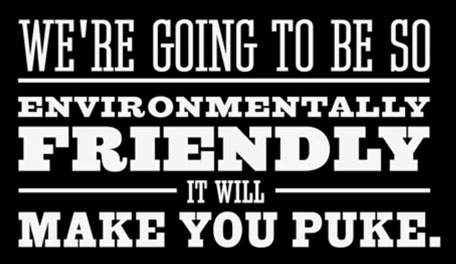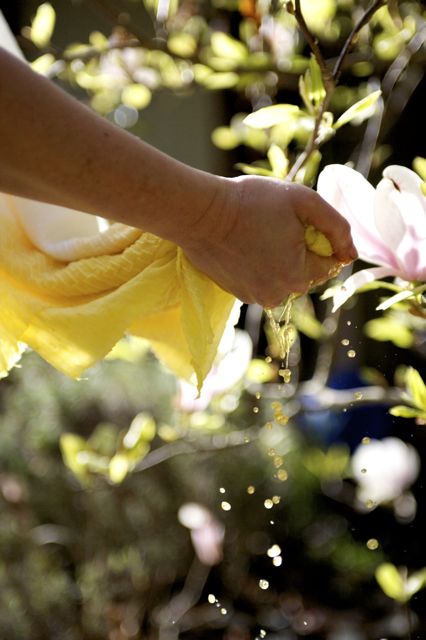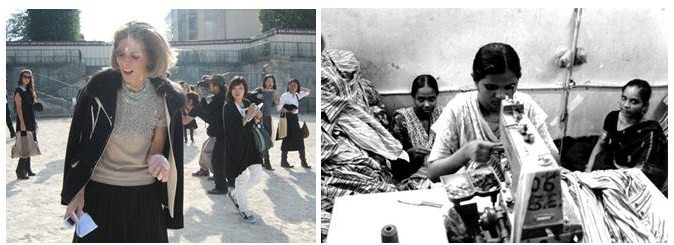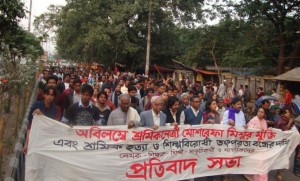Social Alterations is a returning proud sponsor of ECO Fashion Week—Vancouver (EFWV). We are once again coordinating the conference portion of the event, and can’t believe that it is all less than a week away!
An amazing collection of featured speakers have come out to support EFWV because they understand the importance of re/educating the industry toward responsible systems and practices.
Many will cross industry lines to deliver their lessons, and we are thankful for their commitment to the issues they hold dear.
Seminars | ECO Fashion Week—Vancouver
February 25th, 2011 | 10:00 am – 4:00 pm
The Salt Building, Southeast False Creek in the Olympic Village
START// 9:30am
9:30-10:00am Registration
10:00-10:50am Carly Stojsic // WGSN
40 minute Presentation
10 minute Audience Q&A
11:00- 11:50am Scott McDougall // TerraChoice
40 minute Presentation
10 minute Audience Q&A
12:00-12:50pm Michael Smith // Sears Canada
40 minute presentation
10 minute audience Q&A
12:50-1:20pm Break // 30 minute break
1:20-2:10pm Linda Mitchell, Christina Klee, and Mandy Quinsey // NAFTA // Import Specialists, Department of Homeland Security (U.S)
40 minute presentation
10 minute audience Q&A
2:20-3:10pm Dr. Rick Smith // Environmental Defence Canada
40 minute presentation
10 minute audience Q&A
3:20- 4:00pm Panel on Education to Close
3 minutes: Introduction // Mary Hanlon, Social Alterations
10 minutes: 1st Panellist // Denise Taschereau, Fairware
10 minutes: 2nd Panellist // Scott McDougall, TerraChoice
10 minutes: 3rd Panellist // Rick Smith, Environmental Defence Canada
7 minutes: audience Q&A
END // 4:00pm
Retuning to the stage is Carly Stojsic, Canada’s Market Editor for WGSN. At the September event, Carly introduced ECO as Movement, not Trend. For this event, we’ve asked her to return to present a trends analysis for 2012. It’s important for responsible designers to keep up to speed with where and how the industry is moving outside of the eco movement as well. Who better to present this than Carly? Exactly.
_____________________________________________
Scott McDougall, President and Chief Executive Officer of TerraChoice, wrote the book on greenwashing…literally. He is the author of TerraChoice’s ‘Sins of Greenwashing’ studies and an industry leader in responsible marketing. Nothing slips past him, and at EFWV he is presenting ‘Green’ Marketing 101. Check out the Summary and Learning Objectives of his presentation:
Drawing on recent market research, and on TerraChoice’s experience with hundreds of companies in the “green” product space, this session will be a green marketing primer. We’ll begin with a summary of the state of the green marketplace. We’ll examine who wants “greener” products and why, including the unnecessarily narrow view that many companies take of these markets. We’ll touch on lessons from the successes and failures of others. And, we’ll consider the current attention by regulators and consumers to the challenges of “greenwashing” (including TerraChoice’s “seven sins of greenwashing”). All of this will be aimed at generating enthusiasm and knowledge for winning green product strategy.
Learning Objectives:
1) Essential market intelligence to inform green product launches
2) Tips and pitfalls in green marketing
3) Avoiding the “sins of greenwashing”
_____________________________________________
Michael Smith, Manager of Eco Business Development at Sears Canada, will explore how Sears Canada understands sustainability and how the company is working toward facilitating change internally, with suppliers and with customers. The presentation will discuss the life cycle approach which Sears uses and the importance of certification, and will present designer case studies based upon Sears private brands and leading national brands which it offers.
Learning Objectives:
1) Understand Sears approach to sustainability
2) Appreciate importance of life cycle approach to apparel and role of certification
3) Learn from case studies of Sears private and national brands
_____________________________________________
Linda Mitchell, Christina Klee and Mandy Quinsey, Import Specialists with U.S. Customs and Border Protection (CBP) at the Department of Homeland Security (U.S.), will join us to present a seminar on NAFTA/Countries-of-origin-labeling:
Summary:
This session will be a general overview of importing textiles/wearing apparel into the U.S. U.S. Customs and Border Protection will go over country of origin marking and classification. Information will be provided on the rules of origin for NAFTA and how to determine if your articles are originating or meet the tariff shift rules. If your articles do not qualify for NAFTA, there will be information regarding Tariff Preference Level (TPL) claims.
Learning Objectives:
1) Harmonized Tariff Schedule of the U.S. and classifying textiles/wearing apparel
2) Country of origin marking of textiles/wearing apparel
3) NAFTA and TPL claims
_____________________________________________
Dr. Rick Smith is the Executive Director of Environmental Defence Canada and the co-author of “Slow Death by Rubber Duck: How the Toxic Chemistry of Everyday Life Affects Our Health”, with Bruce Lourie. At EFWV Rick will present the “Just Beautiful” Campaign and bring industry toxins to the forefront and educated participants on best practices for responsible business.
For more information on Rick and on the groundbreaking campaigning being done over at Environmental Defence Canada, click here.
_____________________________________________
To close the conference, Social Alterations is hosting a panel on educating responsible business. Scott McDougall and Dr. Rick Smith will stick around and sit on the panel. Joining them will be none other than Vancouver’s own Denise Taschereau, CEO and Co-founder of Fairware, promotional products for your conscious. Before launching Fairware, Denise spent 7 years as the Director of Sustainability and Community for Mountain Equipment Co-op, where she was responsible for overseeing MEC’s national efforts to be a leader in social and environmental responsibility. Click here to check out more from her amazing bio.
For the panel, each panellist has been asked the following question (response prepared in advance):
Within the context of education, what is/are the biggest challenge(s) facing responsible business?
This is an intentionally broad question, and was designed to seek out intersections and gaps between responsible education in theory and responsible business in practice, with respect to the unique experience and expertise of the panellists and their organizations.
We can hardly wait to hear from these speakers, and hope that you will join us!
The EFWV conference sessions are free to attend, but space is limited!
For information on registration, contact me for details: maryhanlon@socialalterations.com
Here is the schedule:
START// 9:30am
9:30-10:00am Registration
10:00-10:50am Carly Stojsic // WGSN
40 minute Presentation
10 minute Audience Q&A
11:00- 11:50am Scott McDougall // TerraChoice
40 minute Presentation
10 minute Audience Q&A
12:00-12:50pm Michael Smith // Sears Canada
40 minute presentation
10 minute audience Q&A
12:50-1:20pm Break // 30 minute break
1:20-2:10pm Linda Mitchell, Christina Klee, and Mandy Quinsey // NAFTA // Import Specialists, Department of Homeland Security (U.S)
40 minute presentation
10 minute audience Q&A
2:20-3:10pm Dr. Rick Smith // Environmental Defence Canada
40 minute presentation
10 minute audience Q&A
3:20- 4:00pm Panel on Education to Close
3 minutes: Introduction // Mary Hanlon, Social Alterations
10 minutes: 1st Panellist // Denise Taschereau, Fairware
10 minutes: 2nd Panellist // Scott McDougall, TerraChoice
10 minutes: 3rd Panellist // Rick Smith, Environmental Defence Canada
7 minutes: audience Q&A
END // 4:00pm






